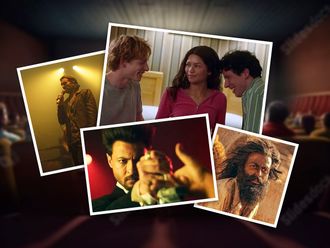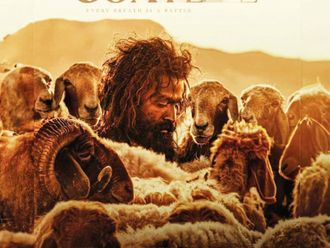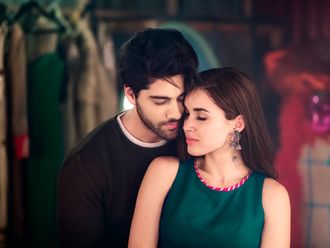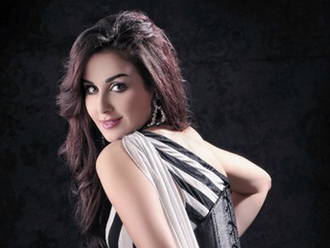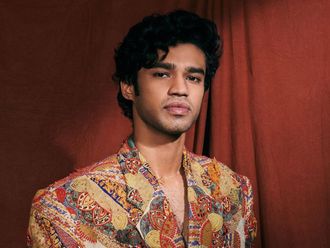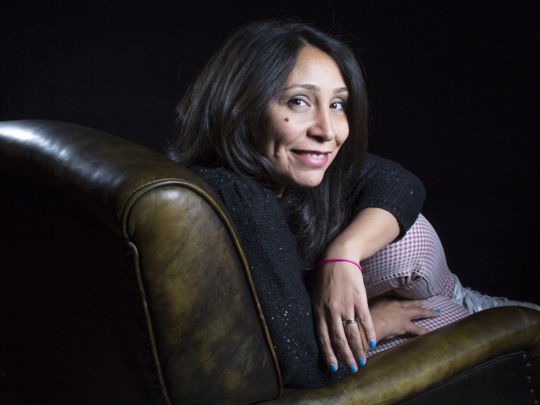
“I’m tired of putting up with them. Let them see who they are dealing with,” declares the protagonist of Haifaa Al Mansour’s latest film ‘The Perfect Candidate’, now available on the OSN Store.
Ambitious and resilient women have always been at the centre of Mansour’s storytelling. Here, lead character Maryam Al Safan (Mila Al Zahrani) is a female doctor in Saudi Arabia, who deals with male patients refusing to be treated by her. Despite resistance, she decides to run for municipal council to bring about change.
In an email interview from Los Angeles, Al Mansour delves into the making of her latest feature. Plus, how she went from feeling invisible as an employee at an oil company, to becoming the country’s first female director — and submitting films such as ‘The Perfect Candidate’ to the Oscars, Venice and Toronto International Film Festival.
Why did you want to tell this story?
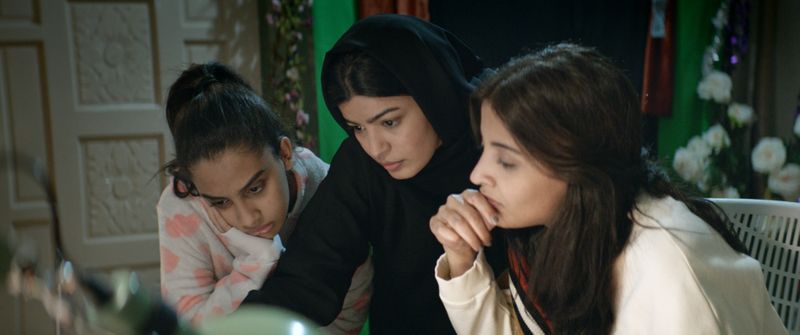
For this film, I wanted to tell a story about a culturally conservative, traditional woman who decides to embrace the changes that are taking place and go out there and seize the moment. The reality of her journey is that it will be difficult, and lots of people will be critical of her choices, but it will ultimately open up a whole new world for her. I want to stress to the women of Saudi Arabia how important it is to go out there and take a chance, even if you don’t have any experience in doing so.
Do you think the inclusion of women in politics, especially in this region, is important?
Of course! It is very important for women to participate and contribute at all levels of society. All of the recent breakthroughs that have come for inclusion for women in Saudi Arabia are huge, seismic shifts for the region. That is why I chose to start the film with the main character driving a car. It is something that would have seemed impossible even a few years ago.
What were the biggest challenges in making this film?
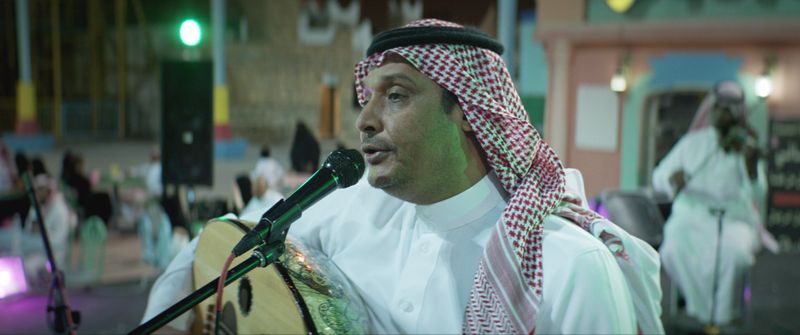
Well, a lot has changed since I made my first Saudi film! It was incredibly difficult to make a film in 2011, and people were still very hesitant to embrace any public form of artistic expression at that time. Film was especially seen as taboo, and the idea of opening theatres had become a red line that most of us thought would never be crossed.
Of course, now everything is different, and we have cinemas going up all across the Kingdom. But the larger issue of a lack of infrastructure in the film industry remains. We have a lot of work to do in building up the tools and resources necessary to make quality films. We don’t have many people with experience in the field yet so putting together a crew and getting the right equipment is very difficult. Getting the proper training and education necessary to help craft and shape our stories is another key area that we need to develop.
In the movie, the main character has to defy the odds to achieve her goal. Can you tell us about a time when you had to fight for what you wanted or believed in?
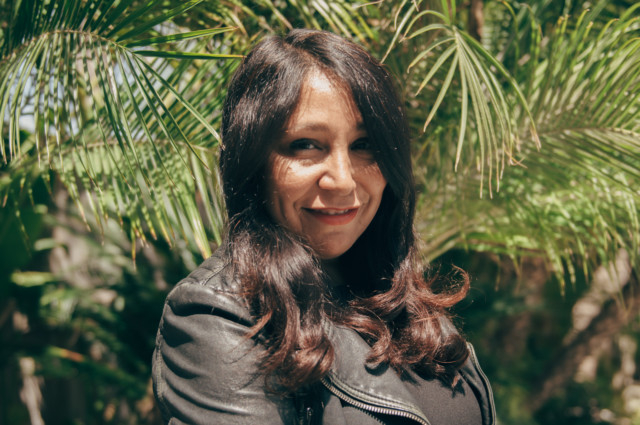
I think that women around the world face similar challenges in the workplace, and always have to defy the odds to succeed. For me, it has always been important to focus on my goals and not the obstacles in front of me. Making my first film was certainly a challenge and the odds were definitely against us. But through my films, I always focus on female protagonists who want to work hard and do their job to the best of their abilities.
For this film, I wanted to create a character that is very much representative of the mainstream mentality of Saudi women. She covers her face and follows the cultural norms of the society but ends up pushing boundaries because she wants to do her job well. The restrictions that keep her from performing her work in the ways that would best benefit the society frustrate her and force her to think outside the box.
She is not a rebel for the sake of rebellion, she is someone that knows that her work can make the country a better place and simply wants to remove the barriers that keep her from accomplishing her mission. I believe strongly that this is the way that true change comes to a society, through hard-working people who simply want to be able to reach their highest potential.
‘The Perfect Candidate’ was accepted as an entry to the Oscars and in competition in Venice. How do you balance creating a film for a local and international audience?
My main concern when writing a film is making it entertaining and engaging to people both at home and abroad. It isn’t easy, as our audiences have different proclivities than Western ones, but I don’t ever want to limit a story to one particular group. I always try to make films that will appeal to people at home and will spark a conversation about something important we face. From there, I try to look at our culture from the outside and understand how it is being perceived and understood by people who are unfamiliar with it.
As Haifaa, who do you make films for?
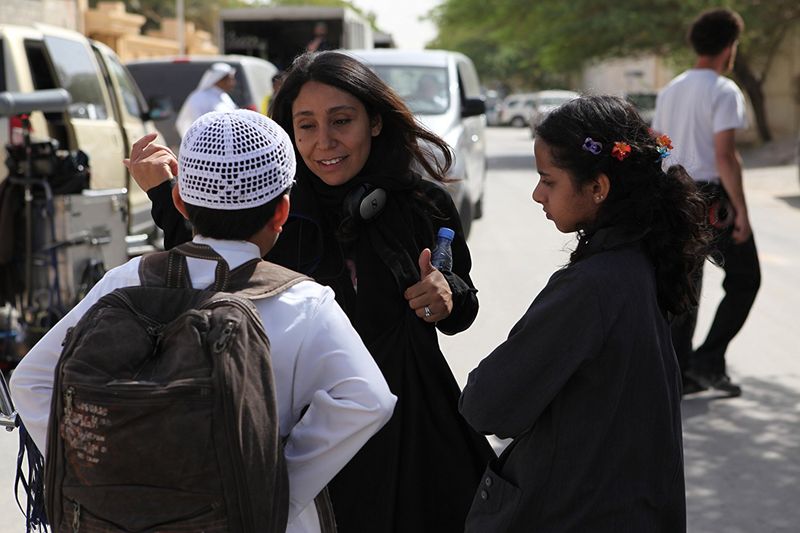
I make the films that I want to see, that I wish I had seen when I was growing up. I also really want to make films that make people a little kinder and make them open up a little to new ideas and perspectives. Film is an incredibly powerful tool in moving a society forward and sparking conversations and debates about the way we do things. So, I hope my films contribute to positive discussions and genuine feelings of empathy and understanding of others.
What were you like when you were younger, perhaps as a student? Were you always a storyteller?
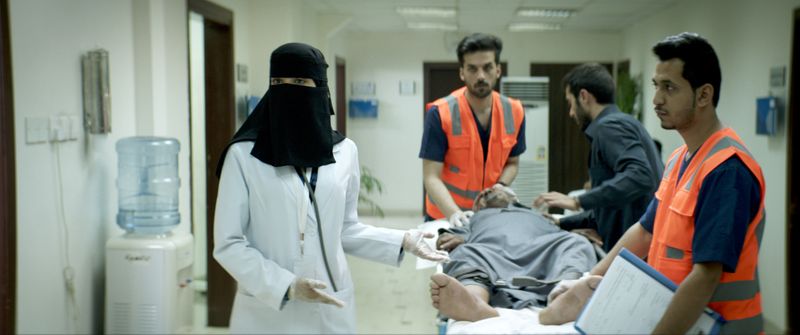
I always liked to do creative things in school. I used to write little morality plays for school, but my journey as a filmmaker really began after college. I was working for an oil company in Saudi and I felt invisible. I would try to speak up in meetings and my male colleagues would completely ignore me. I felt frustrated and alone, so I started making short films as an outlet, as a way for my voice to be heard.
It was a hobby, more than anything else, but it gave me such satisfaction in the art of creation. And I submitted it to all the regional film festivals, and I was shocked that one actually invited me. They were the ones that said, ‘Did you know you are the first female filmmaker from Saudi Arabia?’ That was really something to hear, and such a motivator for me to keep going in the field.
Do you come from a creative household, or did you break the mould?
My father was a poet and my mother has always loved singing so there was a lot of creativity in our house. My oldest sister is a visual artist. Having an artistic family helped shape my artistic inclinations for sure.
The last time we spoke, it was before cinemas had opened up in Saudi Arabia. As a filmmaker, how have things changed, or not, since that happened?
Things change very quickly now, so a lot has changed since then. The mall next to where we were shooting in Riyadh now has a cinema. Cinema will have a huge impact on public life in Saudi Arabia. The shared experience of watching a film in a public place, of feeling the story along with a theatre full of people, is such a positive and joyous experience that Saudis will finally get to enjoy in their home country. It is an important step for the country and lays the groundwork for so much positive change. Cinema is an incredible platform for a society, to ease in ideas of tolerance and acceptance, and allow local audiences to connect with the outside world and better understand it.
What is your biggest challenge as a creative today?
Balancing work and family are always a challenge. It is always hard to be away from my family for a long shoot. They usually come to visit me in the middle, which is always really special, so we find ways to make it work. I get periods of time at home to focus on the family, and we usually do post-production in LA, so it is something I am always focused on.
——————————————
Don’t miss it!
‘The Perfect Candidate’ is now streaming on OSN



